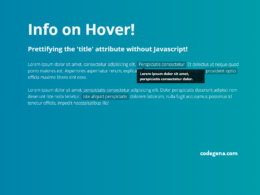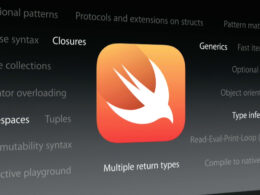The demand for skilled coders and software developers continues to grow. Two primary educational paths emerge for students aspiring to enter the exciting and lucrative coding field. Coding bootcamps and traditional computer science degree programs. Both avenues have their merits.
This article will weigh these options with cost, duration, and curriculum, guiding students toward their ideal career choice. Just like in life, students often face crucial crossroads. It’s hard to determine between bootcamps and computer science degrees. They wonder which path is right.
In addition, students often search ‘write essay for me fast’ to eliminate the daunting task and stress. If you need help, reach out to our professionals at EssayHub. They will spare you stress and time and deliver top-notch essays. Choosing the right path ultimately depends on individual goals, learning styles, and time constraints.
Coding bootcamps offer a fast-track approach to acquiring practical coding skills. This makes them an excellent choice for those aiming to enter the job market or considering a career change quickly. In contrast, traditional computer science degrees offer a more extensive educational experience. A coding boot camp might be the right choice for those seeking rapid skill acquisition. However, if you’re seeking a more thorough educational experience, opting for a traditional degree program is the better route.
Also Read: Discounted applications for students and how to get them
The Rise of Coding Bootcamps
In recent years, coding bootcamps have gained significant popularity. They are alternatives to traditional computer science degrees. These short, intensive programs promise to equip students with practical skills.
Pros of Coding Bootcamps
Coding bootcamps offer several key advantages. First, they provide a fast track to acquiring practical coding skills. They are perfect for landing entry-level coding jobs quickly. Second, they are cost-effective when compared to traditional four-year degrees. They have lower tuition and shorter duration.
Third, bootcamps stay up-to-date with industry trends. They do it by collaborating with tech companies, ensuring students learn relevant technologies. Lastly, they create networking chances through events and job fairs. This enhances job prospects post-graduation.
Cons of Coding Bootcamps
There are some disadvantages to consider. Firstly, coding bootcamps may need more depth and breadth of knowledge. This can limit long-term career growth. Secondly, the intense pace of bootcamps can be overwhelming for some. This pace demands high dedication and aligns differently with those who prefer a slower-paced education.
Thirdly, while they are gaining recognition, not all employers universally accept boot camp credentials. Some traditional companies still favor formal computer science degrees. Lastly, the quality of bootcamps varies significantly. They range from those with rigorous curricula to others needing to improve.
Traditional Computer Science Degrees
Traditional computer science degree programs are on the other side of the spectrum. They are offered by universities and colleges worldwide. These programs provide a comprehensive education in computer science. Let’s examine the pros and cons of pursuing a traditional computer science degree.
Pros of Traditional Computer Science Degrees
A bachelor’s degree in computer science offers in-depth learning of computer science theory. It equips graduates with valuable skills for tackling complex projects. Moreover, it’s a versatile and widely recognized qualification. It enables individuals to pursue diverse tech career paths. Those are software development, data science, and artificial intelligence.
Additionally, university programs often provide research opportunities. They also offer collaboration with professors on cutting-edge projects. This can open doors to advanced roles and contribute to technological advancements.
Cons of Traditional Computer Science Degrees
Pursuing a traditional degree in computer science comes with its challenges. Firstly, four-year programs’ high cost and lengthy duration can be financially burdensome. They might delay entry into the job market. Secondly, these programs often emphasize theory over practical skills. This can potentially necessitate additional training to become job-ready.
Thirdly, the rapidly changing technology landscape can outpace the curriculum. This could leave graduates behind in terms of industry trends and tools. Lastly, these programs may offer less hands-on experience while covering many topics.
Choosing the Right Path
Choosing between a coding boot camp and a traditional computer science degree depends on your career goals.
1. Career Goals
A traditional computer science degree may be better if you aspire to more complex and research-oriented roles. A boot camp could be the right choice if you want to enter the job market with practical coding skills.
2. Budget and Time Constraints
Bootcamps are generally more affordable and have shorter durations. This makes them accessible for those with limited resources and time.
3. Learning Style
Reflect on your preferred learning style. Are you comfortable with an intense, immersive learning environment like a BootCamp? Or do you like the structure of a traditional university program?
4. Industry Demand
Some regions may have a higher demand for boot camp graduates. Others may prioritize candidates with formal degrees.
5. Long-Term Vision
Think about your long-term career goals. A computer science degree may offer a more comprehensive foundation if you envision yourself moving into leadership or research roles.
6. Skill Gaps
Assess your current skill level. A boot camp may be sufficient to fill skill gaps and transition into the industry if you already have a computer science or coding background. For example, some university students complement their degrees with coding bootcamps. Others may start with a boot camp to enter the job market quickly and later pursue a degree for career advancement.
Conclusion
Deciding between these two options takes time and effort. Regardless of your choice, you must stay committed to continuous learning. Don’t forget about staying updated with industry trends. Ultimately, the right path is the one that empowers you to achieve your professional aspirations. Remember, it’s necessary to thrive in the dynamic tech landscape.








